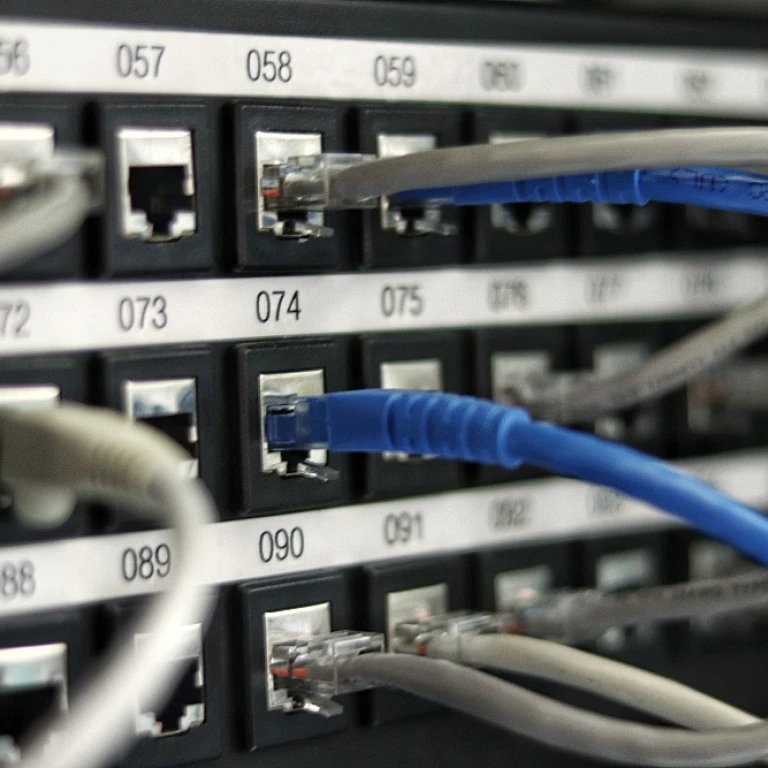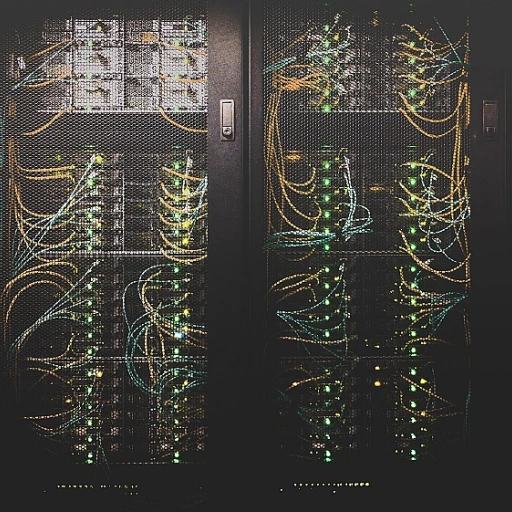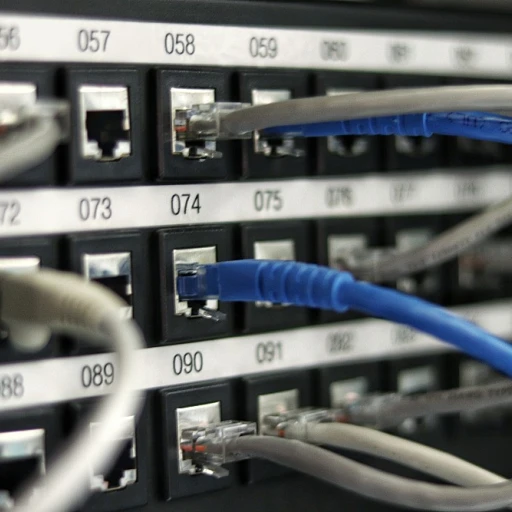
Understanding NetSuite and UPS Integration
Exploring the Intersection of NetSuite and UPS
In today's fast-paced business environment, integrating systems to streamline operations is more crucial than ever. The integration of NetSuite and UPS offers a powerful solution for businesses looking to enhance their shipping operations and overall efficiency. NetSuite, a leading ERP platform, provides comprehensive tools for managing various business processes, while UPS is a global leader in logistics and shipping services. Together, they create a seamless experience that can significantly improve order fulfillment and customer satisfaction.
How Integration Works
At its core, the integration of NetSuite and UPS revolves around the automation of shipping processes. This integration allows businesses to manage shipping labels, track shipments in real time, and access accurate shipping rates directly within the NetSuite ERP system. By automating these tasks, companies can reduce manual errors, save time, and ensure that their customers receive their orders promptly and accurately.
Streamlining Operations with Real-Time Data
One of the standout features of this integration is the ability to access real-time data. Businesses can track shipping items, manage shipping labels, and update customer addresses seamlessly. This real-time tracking not only enhances the accuracy of shipping operations but also provides valuable insights into shipping rates and order fulfillment processes. By having this data at their fingertips, businesses can make informed decisions that improve efficiency and customer satisfaction.
Benefits Beyond Shipping
While the primary focus of the NetSuite and UPS integration is to enhance shipping operations, the benefits extend beyond just logistics. By integrating these systems, businesses can improve their overall management processes, from inventory control to customer account management. This holistic approach ensures that all aspects of the business are aligned and operating efficiently, ultimately leading to improved customer experiences and business growth.
The Role of Automation in Modern Software Solutions
Automation: The Backbone of Modern Software
In today's fast-paced business environment, automation plays a pivotal role in enhancing operational efficiency. The integration of NetSuite and UPS exemplifies how automation can streamline processes, particularly in shipping and order fulfillment. By automating tasks such as shipping label generation and real-time tracking, businesses can significantly reduce manual errors and save valuable time.
Streamlining Operations with Integrated Systems
NetSuite ERP, when integrated with UPS, allows for seamless data flow across various business functions. This integration ensures that shipping rates, item details, and customer addresses are accurately managed and updated in real time. Such synchronization is crucial for maintaining an efficient order fulfillment process and improving overall customer satisfaction.
Enhancing Data Management and Accuracy
One of the key advantages of automation in software solutions is the improvement in data management. With NetSuite integration, businesses can ensure that shipping data, including labels and tracking information, is consistently accurate. This not only aids in efficient shipping operations but also enhances the reliability of customer interactions by providing real-time updates and accurate shipping labels.
Reducing Time and Costs
Automation reduces the time spent on repetitive tasks, allowing businesses to focus on strategic operations. By integrating shipping processes with NetSuite, companies can optimize their time rates and reduce operational costs. This efficiency is particularly beneficial for businesses with high shipping volumes, as it allows for faster order processing and improved time tracking.
For more insights on how tailored systems can improve customer relationship management, you can explore this comprehensive review.
Key Benefits of NetSuite and UPS Integration
Unlocking Efficiency with Seamless Integration
Integrating NetSuite with UPS offers a multitude of benefits that significantly enhance business efficiency. This synergy between ERP systems and shipping solutions is crucial for businesses aiming to streamline their operations and improve customer satisfaction.
Streamlined Order Fulfillment
One of the most notable advantages is the streamlined order fulfillment process. By connecting NetSuite ERP with UPS, businesses can automate the creation of shipping labels and manage shipping items more effectively. This integration ensures that shipping labels are generated in real time, reducing the time spent on manual data entry and minimizing errors. As a result, businesses can fulfill orders faster, improving the overall customer experience.
Real-Time Data and Tracking
Another key benefit is the ability to access real-time data and tracking information. With integrated shipping, businesses can monitor shipping operations and track packages in real time. This transparency allows for better management of shipping rates and order fulfillment, ensuring that customers receive accurate and timely updates about their shipments. The integration also facilitates the automatic updating of shipping addresses and rates, which helps in maintaining accurate records and improving customer satisfaction.
Enhanced Customer Experience
By leveraging the power of NetSuite shipping integration, businesses can offer a more personalized and efficient service to their customers. The ability to set shipping preferences and customize shipping labels according to customer needs enhances the overall customer experience. Moreover, the integration supports seamless communication between the business and its customers, providing them with real-time updates and tracking information.
Optimized Business Operations
Finally, the integration of NetSuite and UPS optimizes business operations by reducing the time and resources spent on manual tasks. This efficiency allows businesses to focus on core activities, such as improving product offerings and expanding their market reach. With the right integration strategy, businesses can achieve significant cost savings and improve their bottom line.
For more insights on how automation can transform business operations, explore our case study on automation in food court ordering systems.
Challenges and Considerations for Implementation
Overcoming Integration Hurdles
Integrating NetSuite with UPS can significantly enhance business efficiency, but it comes with its own set of challenges. Understanding these potential hurdles is crucial for a smooth implementation process. One of the primary challenges is ensuring seamless data synchronization between the two systems. This involves real-time tracking of shipping items, order fulfillment, and updating shipping labels accurately.
Addressing Technical Complexities
The technical complexities of integrating NetSuite ERP with UPS shipping operations can be daunting. Businesses need to consider the compatibility of existing systems and the technical expertise required to handle the integration. This includes setting up shipping rates, managing shipping labels, and ensuring that the integration supports real-time data exchange. Companies often need to invest in skilled personnel or external consultants to manage these technical aspects effectively.
Managing Operational Changes
Operational changes are inevitable when integrating new systems. Businesses must prepare for changes in their shipping operations and order management processes. This includes training staff on new procedures, updating customer service protocols, and ensuring that all departments are aligned with the new system. Effective change management strategies are essential to minimize disruptions and ensure a smooth transition.
Ensuring Data Security and Compliance
Data security is a critical concern when integrating systems like NetSuite and UPS. Companies must ensure that customer data, shipping addresses, and order details are protected against unauthorized access. Compliance with industry standards and regulations is also crucial to avoid legal issues. Implementing robust security measures and regular audits can help mitigate these risks.
Cost Considerations
Finally, businesses must consider the costs associated with integration. This includes the initial setup costs, ongoing maintenance, and potential upgrades. While the integration can lead to long-term savings through improved efficiency, companies need to evaluate the return on investment carefully. Budgeting for unforeseen expenses and allocating resources wisely can help manage these financial challenges effectively.
Future Trends in Software Integration
Emerging Trends in Software Integration
As businesses continue to seek efficiency and streamlined operations, the future of software integration, particularly between platforms like NetSuite and UPS, is poised for significant evolution. Here are some key trends that are shaping the landscape:
- Real-Time Data Synchronization: The demand for real-time data exchange between systems is increasing. This trend is crucial for businesses that rely on accurate and timely information for order fulfillment and shipping operations. Real-time integration ensures that shipping labels, tracking information, and customer data are always up-to-date, reducing errors and enhancing customer satisfaction.
- Advanced Automation: Automation continues to play a pivotal role in modern software solutions. By automating processes such as shipping label generation and order tracking, businesses can save time and reduce manual errors. This trend is particularly relevant for companies using NetSuite ERP, where automation can significantly enhance operational efficiency.
- AI and Machine Learning: Artificial intelligence and machine learning are becoming integral to software integration strategies. These technologies can optimize shipping rates, predict shipping times, and improve overall logistics management. As AI continues to evolve, its integration with platforms like NetSuite will offer more personalized and efficient solutions.
- Enhanced Security Measures: With the increasing exchange of sensitive data, such as customer addresses and payment information, robust security measures are more critical than ever. Future integrations will likely focus on enhancing data protection to prevent breaches and ensure compliance with regulations.
- Scalability and Flexibility: As businesses grow, their software needs evolve. Future integrations will need to be scalable and flexible, allowing companies to adapt quickly to changing demands. This adaptability is essential for maintaining efficient shipping operations and managing increased order volumes.
These trends highlight the importance of staying ahead in the rapidly evolving world of software integration. By understanding and leveraging these developments, businesses can enhance their operations and maintain a competitive edge in the market.
Case Studies: Successful NetSuite and UPS Integrations
Real-World Success Stories
In the realm of business efficiency, the integration of NetSuite and UPS has proven to be a game-changer for many companies. By leveraging this powerful combination, businesses have been able to streamline their shipping operations and enhance their overall order fulfillment processes. Here are some noteworthy examples:
Seamless Order Management
One company, a mid-sized retailer, faced challenges with managing their order fulfillment and shipping processes. By implementing NetSuite ERP and integrating it with UPS, they achieved real-time tracking of shipments and automated the generation of shipping labels. This integration allowed them to set shipping rates accurately and manage shipping items more efficiently, leading to improved customer satisfaction and reduced time spent on manual data entry.
Enhanced Shipping Operations
Another business, operating in the e-commerce sector, struggled with the complexities of shipping integration. Through the integration of NetSuite shipping solutions with UPS, they were able to optimize their shipping operations. The integration provided them with real-time data on shipping rates and enabled them to streamline their label integration process. This not only improved their operational efficiency but also allowed them to offer competitive shipping rates to their customers.
Improved Fulfillment and Customer Experience
A third example involves a company that specializes in customized products. They needed a robust system to handle their unique order fulfillment requirements. By utilizing NetSuite integration with UPS, they were able to automate their shipping label generation and improve their time tracking for shipments. This resulted in faster fulfillment times and a better overall customer experience, as customers received their items promptly and with accurate tracking information.
These case studies highlight the transformative impact of integrating NetSuite with UPS. By addressing the challenges and considerations outlined earlier, businesses can unlock significant efficiencies and enhance their competitive edge in the market.





-large-teaser.webp)









